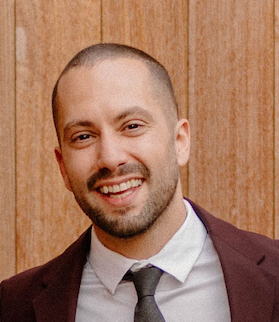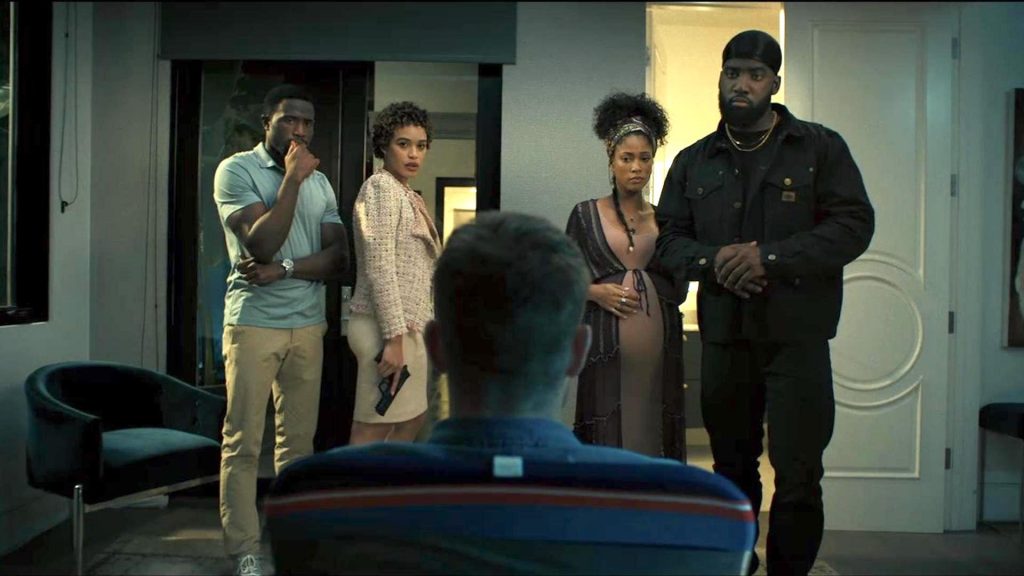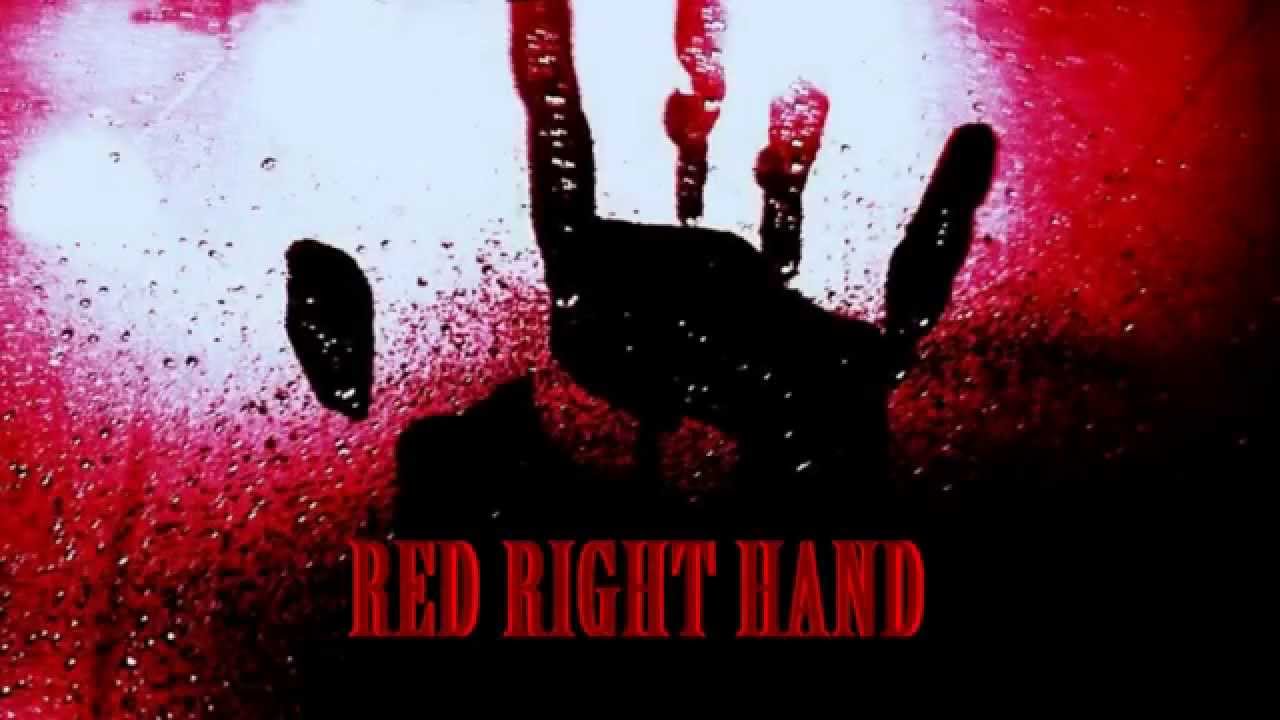Jason Tamasco began his film career in 2009 at then mini-studio, Exclusive Media. In 2013, he joined Latin American production company Dark Factory Entertainment where he headed operations and produced Opening Night starring Topher Grace and the Shudder horror-comedy Deadtectives. Notable projects in Tamasco’s portfolio include the Netflix series El Chapo, the SXSW success A Lot Of Nothing, and the upcoming action thriller Red Right Hand starring Orlando Bloom. Jason shares his thoughts on his current company Traction and the film business at large.
Describe what Traction does and what sets you apart from similar companies
We’re a production company operating in the independent film space and have recently added management to our growth strategy. I think what sets us apart from other companies is we’re producers first. We believe that perspective gives us an advantage from other companies that start off as managers or agents and enter into producing. We know how to get movies made from the moment the script is ready. We’re boots on the ground producers that see projects through delivery.

Jason Tamasco
What types of projects best fit your remit?
Our best fit in format is narrative features. My producing partner Zak Kristofek and I are genre-agnostic. We do have to pay attention to the market and what buyers are asking for, but we lean towards left-of-center action films with strong characters and plot. Think The Town or Sicario. Those are character dramas that have amazing set pieces sprinkled throughout.
Ultimately, we must love it. We’re built on emotion and falling in love with a story/project at the script stage, is what matters most to us. It starts with a simple question — Is this story going to get us out of bed each morning with a burning desire to realize it to the screen? It’s cliché, but if you don’t have the passion which equals the energy to push this rock up a giant hill, then what are we doing?
We produce at all ranges of budget, but we’re finding that our sweet spot is $10-15 million. We know how to stretch a dollar and pride ourselves on quality and being hands on from development through delivery.
Other than writers and directors, what other types of creatives are you most interested in representing?
We’re committed to writers and directors, for now. That’s where we thrive as a company and still have a way to go in expanding before putting more thought to other types of creatives. That conversation will happen as we grow as a company and find the right people to join us who are energized by representing other creatives outside of what my partner and I enjoy.
Your client Jonathan Easley recently placed on the Black List with The Midnight Pool. What aspects of this script do you feel got the voters excited?
What I’m about to say gets thrown around a lot, but Jonathan is such a unique voice. It’s easy to spot, especially when you meet him, and you hear his personal story. My partner (Zak Kristofek) met him years ago and fell in love with his first screenplay Red Right Hand long before he and I got into business together. He championed him. We then produced the film Red Right Hand and were able to attach the The Nelms Brothers as directors and then went and got Orlando Bloom to star.
Further, Jonathan’s a former journalist who’s well-read, well-traveled, and a film lover. He never tries to fit something into a box and I think his writing style and stories are fresh and authentic. He has so much experience as a human and having lived and breathed journalism through politics he’s seen so much of the world and the people that inhabit it. He learned to write screenplays by processing movies he’d watch and applied that to the page in his true to self-style. His transition to screenplay writing was natural, but I believe it’s because he’s been a writer his whole life. He has pages and pages committed to the metaphorical “paper” from a previous career, and he’s now applying that to his new craft. Simply put, he never stops writing!
We believe the aspects of the script that really shine are the setting and his characters. Plus, Jonathan has wonderful prose and can express his stories in a colorful way. He also has a real gift for hooking a reader into his world, immediately. I think people have fun reading him and he allows you to soak into his work effortlessly. His stories stay with a reader.
At what stage did this script come to Traction and what were the key changes made during development?
We’re always working with Jonathan in figuring out “What’s next?” We were having a spitballing session and were trying to figure out what we wanted to do next and how we can keep momentum following his first feature. He had already done action and I believe we targeted horror/thriller since he’s a fan of the genre in both novels and film. As he normally does, he said he had a great idea and was fascinated by certain events around him, so he went off and wrote. When he came back with the screenplay, we then put on the producer hat and went through our normal development process with him and got the script to where it landed on the Black List. There weren’t many key changes during development. A lot of what we do is focus on subtle changes, focus on characters, talk in theory, poke holes in the screenplay and throw a few bad ideas to kickstart the creative process.
Also, we can’t take all the credit for the Black List, Jonathan has an amazing agent in Dave Alexander at Gersh who we first handed the script to and who signed Jonathan because of it. Dave was equally ecstatic about the material as we were, and he hustled every day to get the script read. I think it helps when you have so many people championing someone’s work. The enthusiasm from the team was contagious.
How can prospective writers best get on your radar? What should they have done before approaching you?
We’re still building our brand and working to get movies off the ground, but we will always stay humble and love finding that next script. It’s nice when you’re submitted stuff that’s sometimes packaged, but for us, it’s about stumbling onto something special by putting in the work and constantly reading and scanning the screenwriting competitions and other screenwriting platforms for the best material. Or even talking to friends. We live in Los Angeles, so it’s not hard to meet someone to find out they are a writer. That said, if a writer can find their way onto a competition list, screenwriting website, or get recommended by a platform, that’s a huge win in our eyes. That’s how Zak Kristofek first found Jonathan when he was still a reporter working in D.C.

A Lot Of Nothing.
When assessing new submissions what puts scripts into one of the YES, NO or MAYBE piles?
We track everything and we’re suckers for a good logline that grabs our attention. We’re not big enough to have a “No” pile yet unless it’s an unsolicited submission (which we’re working on a way around, soon).
What are some of the biggest issues you face with new scripts and new writers?
Each case is different, but we think a few of the things we often run into are:
- Timelines — explaining the process and potential timelines to getting a movie made. It takes time and we often see a lot of new writers put everything they have into one script. We always try to be transparent and work towards milestones, but sometimes a project doesn’t get off the ground for several reasons. That doesn’t mean the screenplay didn’t provide value. Getting your project read by the right people is a crucial part of a screenwriter’s career whether or not that one project hits. The work shouldn’t stop after you’ve written one screenplay. That’s why we constantly advise and are looking for writers who are consistently writing.
- Notes – for new writers, I think notes can be tough to hear early in their career. We’re not big on pandering to the crowd too much, but sometimes a producer/manager/agent/executive (insert any player in the industry) knows a thing or two of what people are looking for and bumping against. Sometimes you need to make the necessary adjustments to give your project the best shot. This business is such a collaboration, but that’s why we like to be transparent up front and have those conversations early. I want to be clear that a writer should never go into creating their screenplay with these things in mind. They need to write free of constraints but be open to ideas later that could affect a sale or the right partnership. Everything should be a conversation.
What are some recent films and TV shows you wish you were part of?
Man, that’s a tough question. There’s so much good stuff out there. For no other reason than I admire the work I’d say on the TV side: Game Of Thrones (House Of The Dragon), Dave, Barry, and What We Do In The Shadows.
I know you said recent, but my mind keeps sticking to a few somewhat older movies, so I apologize for dodging the question but in fairness I watch this movies every year. I’m blown away by anything Christopher Nolan. I recently had a friend setup a screening of Interstellar at a theater and it was AMAZING. That movie still hits all the notes for me. Also, Warrior (a very underrated film), and the movie that made me want to get into this business in the first place, Braveheart.
What’s the best piece of advice you can give to screenwriters right now?
Something we share often and is what we want writers to take away from this is not only do you have to love writing, but you have to KEEP writing. Not just when inspiration calls, but each day working on something and keeping that fire burning. You can only improve from it and I’m a firm believer that consistency breeds success.
